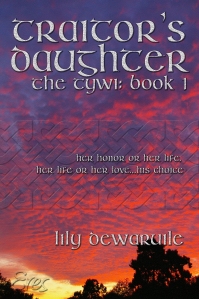If you’ve read The Englishman Who Went Up a Hill and Came Down a Mountain, you might have had great laughs from the nicknames of the characters. This tradition is practiced in Cymru today as well.
A couple in Caerfyrddin, where I lived, were called John Nellie and his wife, Nellie John. This form of address is the way the language (Cymraeg) expresses the possessive. In English, we say Judy’s hat. In Cymraeg, we say het Judy. The object of the possessive case is dominant, the more important thing. In the case of John Nellie, John is the possessed person by the possessor, his wife, Nellie. With Nellie John, Nellie is the person possessed by John, her husband. Equality to perfection. This married pair belonged to one another and everyone knew them in this charming way.
One of our acquaintances was known as Mattie the Gas. She worked for the Gas Board. Another amusing appellation is Tim Court. Tim is often taken to Small Claims Court when he neglects to pay the tradespeople’s bills. Many people earn their nicknames through their actions, as in Tim’s case. Others earn a more affectionate name through their work as in Mattie, above. One of my friends was always known as Siân Toronto, earned for her great efforts to support and promote Cerddoriaeth Werin Cymru (Welsh Folk Music) and the undeniable fact that she came from Canada.
 I employed the above custom to name Garmon Dolwyddlan in Traitor’s Daughter as he claimed to come from that estate and has no father he knows. In the same novel, the chieftain’s poet is called Talog Bardd – his birthplace and his profession.
I employed the above custom to name Garmon Dolwyddlan in Traitor’s Daughter as he claimed to come from that estate and has no father he knows. In the same novel, the chieftain’s poet is called Talog Bardd – his birthplace and his profession.
Like the Scandinavians, Celts named their children after the father. In Cymru, this is the father’s first name. There is no legal requirement for a child to have a family name. Some people have given their children the names of saints as a second name, such as Padarn, Dewi, Teilo. Or the river running through the region of their birth, as Twyi, Ystwyth, Dulais, Tawe, Taf.
Not often now, but we used to hear the people of Cymru called Taffy, with all manner of disreputable characteristics attached. The river running through Caerdydd, Cymru’s capital city, is the Taff. As we know, Canada means “this place” in the native Algonkian language of that country. And Avon means “river” in Cymraeg. Therefore, Stratford-on-Avon is “Stratford on River” and when you hear River Avon, think Afon Afon (River River).
Still today, we hear the term Welsh used to mean “renege or default on a debt.” Needless to say, the Cymry take offense to the use of this term.
Our names are kindred to ourselves and our identities, so much so that to destroy our good name can be the end of the good we think of ourselves. This is one of the most moving clips which exemplifies that connection between our names and who we truly are: The Crucible: “Because it is my name.” The actor playing the role of John Proctor is Osian Rhys.
It is no small thing to put your name to a book or story or letter or confession. Therefore, I give you my name/s: I write medieval Welsh romance as Lily Dewaruile, which is purported to be my family name from the late 10th Century but I am Leigh Verrill-Rhys, also a writer.

